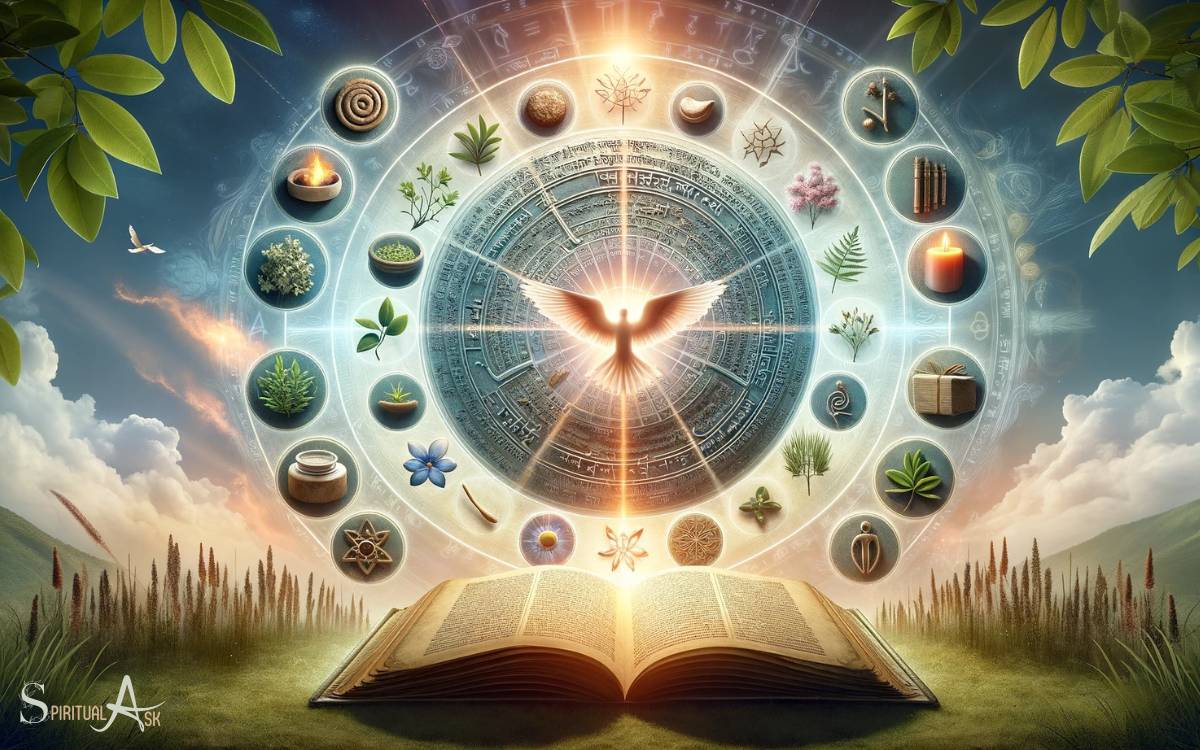Is Spiritual Healing Against God? No!
No, spiritual healing is not inherently against God; many religious traditions incorporate forms of spiritual healing within their practices, and it is often seen as complementary to religious beliefs rather than contradictory.
Spiritual healing can encompass a variety of practices, such as prayer, meditation, laying on of hands, or energy work like Reiki. Different religions have their own approaches to healing that are deeply rooted in their teachings.
For example:
These practices are generally aimed at improving the spiritual health of an individual, which can also affect their emotional and physical states.
The compatibility of spiritual healing with the idea of God depends on individual beliefs, the specific religious context, and the interpretation of religious scriptures.
Spiritual healing practices vary across religions, but many believers find them to be harmonious with their faith in God. Understanding spiritual healing as a way to connect with the divine and seek emotional, mental, and physical well-being is a common thread among many religious traditions. In Christianity, this may include practices such as prayer, laying on of hands, or anointing with oil. In Hinduism, it may involve meditation, yoga, or participating in rituals. Despite the differences in methods, the ultimate goal of spiritual healing is often the same – to achieve inner peace and a closer relationship with the divine.

Key Takeaway
5 Religious Perspectives on Spiritual Healing
| Religion | View on Spiritual Healing | Common Practices | Scriptural Basis |
|---|---|---|---|
| Christianity | Generally supportive | Prayer, Anointing | James 5:14-15 (Anointing the sick) |
| Buddhism | Supportive | Meditation | Dhammapada (Mindfulness teachings) |
| Hinduism | Supportive | Yoga, Mantras | Bhagavad Gita (Holistic well-being) |
| Islam | Supportive with caution | Dua (Supplication) | Quran (Healing verses) |
| Judaism | Supportive | Prayer, Rituals | Torah (Healing prayers and rituals) |
Historical Perspectives on Spiritual Healing
As a historian, I have examined numerous historical accounts that unequivocally demonstrate the widespread use of spiritual healing practices across different cultures and civilizations.

Throughout history, various societies have turned to spiritual healing as a means of addressing physical, emotional, and mental ailments.
From the ancient traditions of Chinese medicine and Ayurveda in India to the healing rituals of indigenous peoples and the spiritual practices of Ancient Egypt, there is a rich tapestry of evidence showcasing the prevalence and significance of spiritual healing.
These practices often involve the invocation of divine forces, energy manipulation, and the use of natural elements to restore balance and well-being.
Understanding the historical context of spiritual healing is crucial in appreciating its enduring presence in human societies and its impact on individuals’ lives.
Scriptural Interpretations and Spiritual Healing
I’ve analyzed various scriptures to discern the stance on spiritual healing, revealing intriguing insights into its compatibility with divine teachings.

In my research, I’ve found that scriptural interpretations regarding spiritual healing are multifaceted and open to diverse understandings.
Here are some key points to consider:
- Compassion and Healing: Many scriptures emphasize the importance of compassion and the healing of the sick, indicating a positive view of spiritual healing practices.
- Faith and Miracles: Some texts highlight the role of faith in miraculous healings, suggesting that spiritual healing may be aligned with the expression of unwavering faith.
- Holistic Well-being: Certain scriptures advocate for holistic well-being, encompassing spiritual, emotional, and physical healing, which resonates with the principles of spiritual healing.
- Ethical Considerations: There are also teachings on ethical conduct and the proper use of spiritual gifts, prompting thoughtful reflection on the ethical implications of spiritual healing practices.
These insights demonstrate the complex interplay between scriptural interpretations and spiritual healing, inviting further contemplation on this subject.
The Role of Faith in Spiritual Healing
My understanding of spiritual healing centers on the pivotal role of faith in facilitating transformative and restorative outcomes.

Faith, to me, is not just a belief in the existence of a higher power, but also a trust in the unseen forces that work towards healing. It is the unwavering conviction that healing is possible, even when conventional methods may seem inadequate.
Faith provides the foundation for hope, resilience, and perseverance during the healing process. It enables individuals to tap into inner strength and connect with the divine for comfort and guidance.
This deep sense of faith often leads to a sense of peace and acceptance, which can be profoundly healing.
Controversies Surrounding Spiritual Healing

In my experience, controversies surrounding spiritual healing often revolve around differing interpretations and understandings of its role within religious beliefs.
Some of the key points of contention include:
- Integration with medical treatment: Many debates arise regarding whether spiritual healing should be used as a complement to traditional medical treatment or as a standalone practice.
- Efficacy and evidence: There is ongoing debate about the scientific evidence supporting the effectiveness of spiritual healing, leading to skepticism and controversy.
- Ethical considerations: Discussions often center around the ethical implications of spiritual healers making promises of curing illnesses, especially when it involves vulnerable individuals.
- Interfaith perspectives: Controversies can arise when considering how spiritual healing aligns or conflicts with different religious beliefs, leading to diverse interpretations and opinions.
These controversies highlight the complex and multifaceted nature of spiritual healing, sparking important discussions within various communities.
Embracing Spiritual Healing in Modern Society
Embracing spiritual healing has become increasingly prevalent in modern society. As someone who has witnessed the benefits firsthand, I understand the appeal.

In a world filled with stress and anxiety, many people are seeking alternative methods to find peace and healing.
Spiritual healing offers a holistic approach that addresses not only the physical but also the emotional and spiritual aspects of well-being.
It provides a sense of connection and purpose, which are crucial in today’s fast-paced and often disconnected world.
Embracing spiritual healing doesn’t necessarily mean rejecting modern medicine or religious beliefs. Instead, it complements existing practices and can be integrated into one’s personal belief system.
The growing interest in spiritual healing reflects a broader societal shift towards holistic health and a deeper understanding of the interconnectedness of mind, body, and spirit.
Conclusion
Well, folks, it looks like the age-old debate about spiritual healing and its place in the eyes of God will continue to rage on. Whether you’re a believer or a skeptic, one thing’s for sure: spiritual healing isn’t going anywhere.
So, grab your crystals, light some incense, and let’s all come together in the name of healing – or in the name of a good laugh. Either way, it’s all part of the spiritual journey, right?






